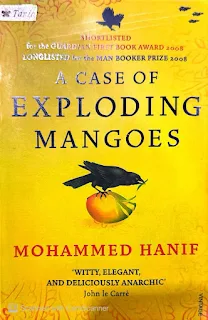The Monkey Man (2024)
Director: Dev Patel
Far from it, this is also an attempt to retell the Ramayana story. In the Ramayana narration of events around 5000 BCE, King Rama was exiled for 14 years into the forest after political arm-twisting led by his stepmother. Raavan became the villain when Rama turned down Ravana's sister, Shurpanakha's sexual advancement. Her antics got her nose slashed off. Raavan kidnapped Rama's wife, Sita. Rama, in search of his missing wife, Sita, befriended Hanuman, and the rest is history, as written by Valmiki and others.
In the Ramayana, Rama and Hanuman are on the side of the truth, whereas Raavan, with his 10 branches of wisdom, assumes the protagonist role. However, this film version deliberately mixes up the roles of the hero and villain.
Monkey Man is a streetfighter who appears regularly at an underground no-holds-barred mixed martial arts fight scene for a measly stash of cash. He has a dark secret from his past for which a score must be settled.
In that town, there is a heartless businesswoman who basically controls all the vices around. The men in power support her activities—the police chief and his yeomen, the strongmen in town, the politicians, and the saffron-robed man of God.
The fighter, @ Bobby, @Kid, grew up as a tribal kid with his loving mother at the edge of the forest, but greedy businessmen ruthlessly burned their house to take over their land. His mother was lit alive by the police chief right in front of his eyes in his childhood - hence the need to avenge.
To build up the climax to the eventual destruction of the corrupt system, the audience is feasted to (or has to sit through, depending on your taste) minutes of swashbuckling and pumping of adrenaline done in the veins of 'Kill Bill', 'War of the Dogs' or any of the Hong Kong fast-paced kungfu movie fast-moving cameras. Actually, the action sequences are of high standards.
The fighter, @ Bobby, @Kid, grew up as a tribal kid with his loving mother at the edge of the forest, but greedy businessmen ruthlessly burned their house to take over their land. His mother was lit alive by the police chief right in front of his eyes in his childhood - hence the need to avenge.
To build up the climax to the eventual destruction of the corrupt system, the audience is feasted to (or has to sit through, depending on your taste) minutes of swashbuckling and pumping of adrenaline done in the veins of 'Kill Bill', 'War of the Dogs' or any of the Hong Kong fast-paced kungfu movie fast-moving cameras. Actually, the action sequences are of high standards.
The way I see this movie is told is that of a modern tale of Ramayana. A leftist embroiled in anti-Hindu sentiments always looked at modern Rama as an intruder. He intruded on the forest, initially occupied by the Adivasis, to upset their equilibrium by invading their space and hunting their food. In a screwed-up way, in modern-day Ramayana, Ravana is not the lone villain but has joined forces with Rama. Symbolically, Rama is referred to as the safron-clad religious man. He is in cahoots with other branches of power. Allegorically, they are represented in the ten heads of Ravana.
So, Hanuman, as the last man standing, has to go rogue to defend his people. He is Bobby @ Kid, trying to right the wrong, undoing the sins of the religious leaders, tycoons, political leaders, the police and the whole cabal of oppressors of the marginalised.
At the end of the day, even though it was filmed in Batam, Indonesia, the whole show primarily aims to paint India as a lawless country. By repeatedly showing Hindu iconography in many of its frames, it tries to showcase Hindu culture as twisted. Everyone is corrupt, and there can be no redemption.
Is it a mere coincidence that its release is eerily in the year when India, the biggest democracy, is about to re-elect Modi for an unprecedented third time? Still, the movie has a high entertainment quotient and high-value production. It is highly recommended for the curious-minded who do not mind the occasional head-butting. (Or is it butthurt?)
.jpg)









